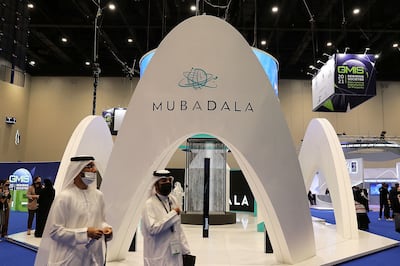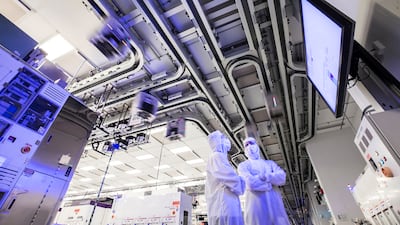As the UAE gears up to celebrate its Golden Jubilee, we can be tremendously proud of where we have come from, what we have achieved and where we are going. We are a young nation with big ambitions, realising the vision our Founding Fathers set out 50 years ago.
There is much to celebrate here in our homeland – the advancement of infrastructure, world class education, culture and sport, as well as the vitality of our economy.
But in an increasingly globalised world it is also the strength of the UAE’s international bonds that lay the foundation for the next 50 years.
Earlier this year, the UAE was ranked first in the Arab region and 17th worldwide in the Global Soft Power Index 2021 produced by the influential Brand Finance research organisation. This impressive result was put down to many factors, including bold efforts in areas such as the Emirates Mars Mission, Dubai Expo 2020 and the nation’s response to Covid-19. But the result is also a reflection of the UAE’s longstanding investment in building strong bonds in the global sphere.
As an international energy company with operations in 10 markets, at Mubadala Petroleum we feel this growing influence on a daily basis.

One of the greatest legacies of the nation’s progress is therefore the deep partnerships we have built overseas. They have been critical to the success of our company and vital to the nation’s development.
At Mubadala Petroleum, we are partners to foreign governments, delivering reliable, affordable and sustainable energy for their communities. The way we do business, with a long-term mindset while striving for world-class standards, has built a deep well of trust with these host nations.
For instance, just last month we received the Gold Award from PETRONAS in the Malaysianisation Excellence category in support of our work to develop local talent. In Indonesia, we were awarded the prestigious “Professor Subroto Award” for oil and gas safety, the highest award from the Ministry of Energy and Mineral Resources in Indonesia.
In this context, I believe there are three key areas driving our international profile as a nation that will define our progress for the next fifty years.
The first is being part of an international community. Each and every day we live this at Mubadala Petroleum. Our company houses more than 30 different nationalities and we have grown over the years to be active in ten countries. For example, just this year we entered Israel, a new and dynamic market which has strengthened our international portfolio and created new partnerships.
To enable this growth, the only way we can succeed is through this shared sense of community. We must recognise that we have a joint destiny and common needs. In the energy space, this means working with partners to support energy transition in fair and equitable way, while ensuring reliable energy supply. But it also means investing in local communities. That’s why last year saw us reach almost 80,000 people through education initiatives, environmental projects and community development schemes aligned with all 17 UN Sustainable Development Goals.
The second theme is the continuation of progress and development. Human nature is inherently focused on growth. As Abu Dhabi’s international energy company, we are inspired by the constant march of development and innovation across the Emirates.
We are forging our place in the world by thinking boldly and creatively.
For Mubadala Petroleum, it means playing our part in the energy transition through our almost two-thirds gas-biased portfolio; it means focusing on emissions reduction, having delivered a 25 per cent reduction in greenhouse gas emissions between 2017 and 2020 in our operated assets; and it means deploying technology to drive progress, like the AI tool our Thai team developed in house to automate aspects of maintenance, saving millions of dollars in the process.
The final big theme, is opportunity. This runs deep in our DNA as a nation and as a business. For our people this is opportunity to grow their careers, to learn new skills, to travel and to explore.
Take the young UAE Nationals who are part of our two-year Schlumberger Apprenticeship scheme to develop future engineers in cutting edge digital and technology skills. Working in a company such as Mubadala Petroleum provides an opportunity to make a difference and develop.
By doubling down on our nation’s soft power and investing in the partnerships we have nurtured overseas for many years, these themes of community support, ongoing progress and seizing opportunities will continue to be our foundation for future growth.
As we celebrate 50 glorious years, let’s reflect on the vision of our Founding Fathers who embraced a tolerant, outward-looking national profile that continues to be the key to our success, today and for the next 50.


